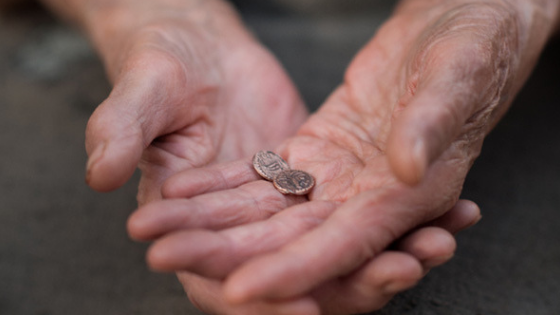The Sunday Liturgy Commentary
The 26th Sunday of Ordinary Time – 30th September 2018
Lectionary readings: Num. 11:25-29; Ps. 19:8,10,12-14; Jas 5:1-6; Mark 9:38-43,45,47-48
Theme: Called to hear and to speak God’s word.
Download
 ‘But Jesus said, “Do not stop him; for no one who does a deed of power in my name will be able soon afterward to speak evil of me.’ (Mk 9:39) This verse makes an interesting link between deeds of power and not speaking evil of the source of that power. This raises such questions as; ‘where is the source of my own power?’ and ‘how do I experience power in others?’ It also invites reflection on how the experience of power reduces our capacity to speak evil of another.
‘But Jesus said, “Do not stop him; for no one who does a deed of power in my name will be able soon afterward to speak evil of me.’ (Mk 9:39) This verse makes an interesting link between deeds of power and not speaking evil of the source of that power. This raises such questions as; ‘where is the source of my own power?’ and ‘how do I experience power in others?’ It also invites reflection on how the experience of power reduces our capacity to speak evil of another.
‘Listen! The wages of the labourers who mowed your fields, which you kept back by fraud, cry out, and the cries of the harvesters have reached the ears of the Lord of hosts.’ (Jas 5:4) Listen! What do we hear? The defrauded ‘wages … cry out’. To whom? The person who has committed the fraud? There is almost a momentary opportunity to change, to do the right thing perhaps, to hear that brief pang of conscience, before God hears the harvesters themselves who have been defrauded. Our conscience may support us to hear God’s word and do what is right … but first, we must listen to it.
In Numbers 11:29 we read, ‘Would that all the Lord’s people were prophets, and that the Lord would put his spirit on them!” ‘The root נבא appears to be related to Akkadian nabû, to call. The נב’א (navi), prophet, is one who is called to announce God’s will.’ (Plaut p1093) The prophet’s power is in hearing God’s word and doing God’s will by speaking that word. The prophet chooses not to ‘speak evil’ of, or to place a ‘stumbling block’ before another as he is empowered by God’s word to support the oppressed who are unfairly treated. (Mk 9:39, 42) The poem ‘A bag of tools’ by R.L. Sharpe captures the choice we’re all given:
‘Isn’t it strange how princes and kings,
and clowns that caper in sawdust rings,
and common people, like you and me,
are builders for eternity?
Each is given a list of rules;
a shapeless mass; a bag of tools.
And each must fashion, ere life is flown,
A stumbling block, or a Stepping-Stone.
God’s word may be a challenge for the prophet to speak but prophets rise above these challenges, turning their own inner stumbling blocks into stepping stones for God’s word by allowing God’s word to transform their attitudes and behaviours. ‘Would that all … were prophets’. What a prophet ‘achieves comes against his will. He does not call for it; he is called upon. God comes upon the prophet before the prophet seeks the coming of God.’ (Plaut p1096)
For Reflection and Discussion: [1] How does God call you? [2] Notice for a day or two (or more!) the impact your communication has on others and theirs on you, e.g. how you use and experience silence, words and actions in communication. [3] Are you communicating God’s Word?
Bibliography: Levine & Zvi Brettler (eds.), The Jewish Annotated New Testament, (Oxford, 2011); Plaut (ed.), The Torah, A Modern Commentary (New York, 1981), NRSV.
This week’s teaching commentary was prepared by
Thérèse Fitzgerald, nds, Dublin, Bat Kol alum 2015, 2018
theresefitzgerald7@gmail.com
[Copyright © 2018]
…………………………………………………
PLEASE NOTE: The weekly Gospel commentaries represent the research and creative thought of their authors, and are meant to stimulate deeper thinking about the meaning of the Sunday Scriptures. While they draw upon the study methods and sources employed by the Bat Kol Institute, the views and conclusions expressed in these commentaries are solely those of their authors, and do not necessarily represent the views of Bat Kol. Questions, comments and feedback are always welcome
………………………………………………
Bat Kol Institute for Jewish Studies, Jerusalem
1983-2018
“Christians Studying the Bible within its Jewish milieu, using Jewish Sources.”
Mail to: gill@batkol.info; Website: www.batkol.info



